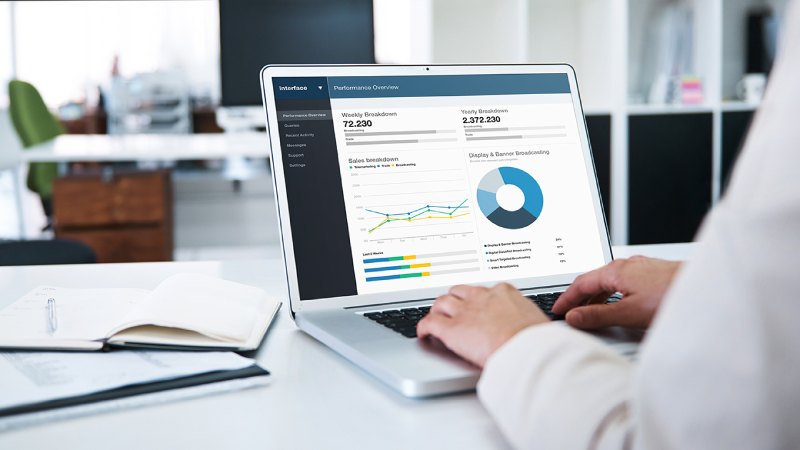Sustainable finance refers to the practice of considering environmental, social, and governance factors when making investment decisions. Sustainable finance has gained traction in the financial sector, opening up opportunities for long-term investment in sustainable economic activities. Enroll in an online sustainable finance course to learn about sustainable finance and how it can help your company’s competitiveness. To get the most out of your system, make sure a reputable company offers it. In this article we will learn about Sustainable Finance Skills Prove Beneficial in Today’s Competitive Business Markets
Climate change is a stark reality that is having a significant impact on business and other economic activities. To survive, companies must consider environmental factors such as climate change and how to adapt their operations to this ever-changing environment. In addition to ecological concerns, businesses must consider social factors (labor relations, inclusiveness, and inequality) when making significant decisions.
For long-term sustainable growth, your company must adopt sustainable finance skills in the management structure and among the employees.
Table of Contents
Useful Sustainable Finance Skills
There are some critical sustainable finance skills that you will need if you want to succeed as a sustainable finance professional in today’s environmentally conscious society.
Climate Change Administration
To shape the organization’s climate change strategy, policies, goods, and services.
Indicators of Impact, Measurement, and Reporting
You should have the necessary knowledge and skill set to monitor, analyze, and report on the impact of sustainability actions. You should be able to lead your company in developing an impact mission and goals for your organization and customers.
Natural Capital Management
Assist in decision-making and organizational dealings, conduct natural capital market research, and direct the organization’s policies and strategies in response to natural capital policy and market developments.
Solutions and Applications for Long-Term Insurance and Reinsurance
It will significantly benefit you if you have experience developing new or existing sustainable insurance or reinsurance solutions. These solutions should align with global best practices and help customers improve their sustainability performance. By enrolling in a reputable institution’s sustainable finance course, you can learn more about sustainable insurance and reinsurance solutions.
Taxonomy Implementation
As a professional, you should be able to analyze and modify your organization’s strategy practices, policies, and various business activities. Organizational change should be implemented in response to major domestic, regional, and global taxonomies identifying green and transient economic activity. You should obtain a sustainable investment certificate from a well-known institute to learn more about adapting your organization to changing government policies on the green economy. The knowledge you gain from the course will assist you in steering your organization toward long-term goals.
Knowledge of Non-Financial Industry Developments Sustainability
Analyze the sustainability-related risks, opportunities, and market trends in non-financial industries and their influence and applicability to the organization and the financial sector.
Management of Sustainable Investments
You should have the experience and skills to guide your company’s investments in the long term. Your abilities and experience should also include implementing various sustainable concepts and approaches to portfolio management.
The Design of Long-Term Lending Instruments
You must have knowledge and sustainable finance skills to create viable lending instruments. These instruments include trade financing, loans, bonds, derivatives, and hybrid finance. To increase the popularity of these long-term lending products among investors, you must devise an incentive mechanism business markets.
Reporting on Environmental Sustainability
You should be able to develop your company’s sustainability reporting, processes, and accounting policies. These must comply with legal requirements as well as global best practices.
Risk Management for Sustainability
You should take a sustainable finance course to learn how to develop strategies, frameworks, and policies for your organization to implement and manage sustainability risks. You should also have prior experience mitigating or managing risks to your organization due to the transition to a new framework for achieving long-term sustainable goals.
Development of Stewardship for Sustainability Goals
It would help if you contributed to developing a stewardship strategy for your organization. This strategy’s primary focus should be on policies and procedures that will aid in implementing organizational investment and sustainability goals.
Cost reduction and increased efficiency
You should be able to develop and implement a long-term business strategy that will help your company save money and improve efficiencies. Your sustainable system, for example, should assist your company in reducing its use of water, fossil fuels, and other resources that directly impact overall costs.
Why Are Businesses Seeking Sustainable Finance Skills?
Businesses seek talented professionals with experience in sustainable finance to improve efficiency and market competitiveness. The following are some of the advantages of sustainable finance for a business:
Using a Sustainable Development Approach to Reduce Risks
Social and environmental risks can directly impact your company’s material financial risk. If you want to reduce risk in this interconnected world, you should be able to take an integrated approach to risk management for your company due to environmental causes.
Increasing Earning Potential and Improving Competitiveness
Experts searching for links between a company’s sustainability and profit have discovered a variety of proofs that support the assumption that a sustainable company is profitable in the long run. Companies implementing sustainable business principles will benefit significantly as global business markets transition to a more sustainable economic model. As a result, business markets are actively seeking sustainable growth models to access new green markets rapidly expanding globally.
Contributing to Innovation
The finance team can concentrate on innovation when a company employs long-term integrated thinking. They achieve this by modernizing their current business model, processes, and technologies, allowing the company to integrate seamlessly into the new green global economy.
Improvements in Employee Retention and Development
Sustainable development also focuses on improving human capital by investing in employees and making them stakeholders in the success of your organization. This method provides numerous benefits, including increased employee retention, productivity, and cost savings throughout the value chain.
Conclusion
Leaders focused on taking the innovative initiative to effect change are required across the board as environmental concerns have grown significantly in recent years. Joining a reputable institution’s sustainable finance course is one way to instill a sense of urgency and assist new managers in re-skilling themselves. Such a course will give them in-depth knowledge of the green economy and the recent trend toward sustainable development. It will also assist managers in adapting to new changes and seeking new opportunities to continue their companies’ success stories.
Also read: How To Motivate The Upcoming Tech Entrepreneurs
Also read: How to Manage Your Digital Footprint and Map It?
- What are Sitewide Backlinks & Their Impact on Search Engine Ranking - May 22, 2024
- 10 Tips For How To Use Craigslist to Buy - May 5, 2024
- Best 5 ways to how to get play store back on my smartphone? - May 3, 2024



